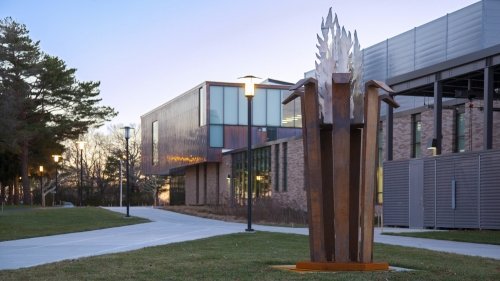More Questions Answered
- You must be a Rhode Island resident who qualifies for in-state tuition.
- You must complete the FAFSA each year you apply for the Hope Scholarship.
- You must enroll or have enrolled full time at Rhode Island College as a first-time, freshman student and continue to be enrolled on a full-time basis at Rhode Island College, or be an adult student who has completed 60 credit hours at Rhode Island College over a duration of no more than four years.
- At the time of the award, you must be enrolled full-time, have declared a major, maintained an average annual cumulative GPA of at least 2.5 and earned a minimum of 60 credits toward an eligible program of study.
- Students must commit to live, work or continue their education in Rhode Island after graduation.
- The scholarship covers “mandatory fees and tuition.” This does not include room and board, textbooks, program fees for some majors, course fees for some specific courses, meal plans or travel.
- The scholarship covers the student’s junior and senior years or two years for an adult student.
- It is limited to one award per student but covers two years.
The scholarship covers the gap after the awarding of all other financial aid, except for DCYF and Onward We Learn (formerly College Crusade) scholarships.
A student is on track to graduate if after two years of study they have the required credits toward a major and can be expected to graduate within a total of four years.
You must maintain an average annual cumulative GPA of 2.5 or higher while enrolled at Rhode Island College.
No. You must enroll or have enrolled full time at Rhode Island College as a first-time, freshman student or be an adult student who has attained 60 credit hours at Rhode Island College over a duration of no more than four years.
- “On track to graduate” degree completion can exceed four years for students who require developmental education, are double majors or are enrolled in certain professional programs that may require an extended time period.
- A student with an approved medical or personal leave of absence who is unable to satisfy program requirements because of the medical or personal circumstances will maintain eligibility.
- A student who is a member of the National Guard or a reserve unit of a branch of the United States military who is unable to satisfy program requirements because of a training or deployment will maintain eligibility.
- A student with a disability shall be afforded all reasonable accommodations as required by the ADA, including enrolling on a part-time basis or taking longer than four years to graduate.


